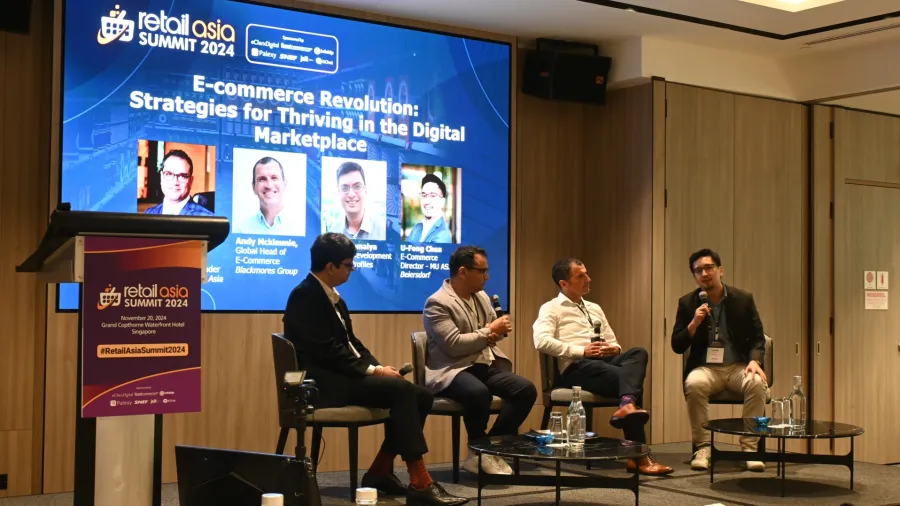
Retailers told to think outside the box when faced with strict rules
They should localise their products and ensure they are aligned with market demands.
Retailers should view regulatory challenges as windows of opportunity instead of being discouraged by strict rules from entering new markets, industry leaders told the recent Retail Asia Summit 2024 in Singapore.
These rules should drive retailers to localise their products and ensure these are aligned with market demands, according to panellists led by U-Fong Chua, e-commerce director for Southeast Asia (SEA) at Beiersdorf AG, Andy Mckimmie, global head of e‑commerce at Blackmores Group, Sachin Somaiya, business development director for Profiles Division at Kantar, and moderator Vivek Sharma, consumer industry technology and transformation leader for SEA at Deloitte.
Chua, whose company owns German brands like Nivea, Eucerin and La Prairie, said their skincare products had a difficult time entering the Indonesian market because of its Halal certification requirements.
“Even if we have 175 years of history, infiltrating the Indonesian and Malaysian markets, by far, was the hardest we had to go through,” he said.
“The local regulations made us think outside the box and helped us create a hijab scheme, which boosted sales,” he added, referring to their marketing campaign and range of products that targeted hijab-wearing Muslim women.
Halal-certified skincare products are limited, though their global market value is projected to reach $50b by 2025, according to the American Halal Foundation.
From a technological standpoint, Mckimmie said Blackmores, an Australian health supplement company, ensures that its social media content is reviewed for each market.
"We deployed a global regulatory team and a localised one so we can make sure that our content is consistent from a global perspective yet also locally compliant,” he added.
Mckimmie said they also micromanage their marketing affiliates for social commerce, ensuring that their claims are consistent and adhere to local rules.
Somaiya said it is important that brands do not overpromise. “Consumers are fast to pick up on even the littlest inconsistencies and it will drive them away,” he said.

















 Advertise
Advertise




